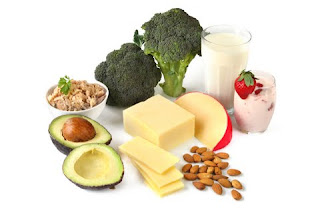
By Ashi Jas
Vitamins are organic substances necessary in very small amounts to direct different processes within living cells. Even though vitamins offer no energy benefits to the body directly, they do help set free the energy stored in carbohydrates, proteins, and fats. Thus, most vitamins help chemical reactions to take place. The human body does not produce most of the vitamins it requires and must obtain them from foods.
When taken as a dietary supplement in the daily diet, they help balance out the deficiencies of improper eating habits, overcooked foods, and non-nutritive processed foods. Vitamins are also critical in the production of red blood cells and the protection of the nervous, skeletal, and immune system.
Humans require 13 essential vitamins.
Four are fat-soluble vitamins (Vitamins A, D, E, and K), and the remaining nine are water-soluble (Vitamins C and the eight B-complex vitamins: thiamin, riboflavin, niacin, vitamin B-6, folate, vitamin B-12, biotin, and pantothenic acid).
Solubility refers to how a vitamin is absorbed, transported, and stored in the body. The water-soluble vitamins are absorbed directly into the bloodstream. Extra water-soluble vitamins are removed by the kidneys and excreted in the urine. Fat-soluble vitamins are usually transported in the blood by special proteins and excess gets stored in the fatty tissues of the body rather than excreted.
Some of the vitamins and their benefits are as follows -
Beta-carotene protects against cancer, memory loss and heart disease.
It helps improve vision and fight skin disorders, such as psoriasis and eczema, protect throat, mouth, and lungs from pre-cancerous cells.
It is best to get beta-carotene through dietary sources, as artificial supplementation in high doses is still controversial. Rich dietary sources are yellow, orange and green leafy vegetables.
Biotin is used in the metabolism of protein, fats, and carbohydrates. It also helps in energy production and can to a certain extent help people with diabetes by keep glucose levels reduced. Other benefits include healthy hair, skin, nails, reducing tiredness, heartburn and some allergies.
Folic acid (Vitamin B9) - is an important vitamin for women who are trying to conceive and those already pregnant. It helps to make the heart healthy, increases overall energy level and helps combat
Alzheimer's disease.
Good sources of folic acid are leafy green vegetables, liver and fruits.
Vitamin A is a very effective antioxidant. It also plays an important role in maintaining healthy vision, keeps the cells of the skin healthy, helps relieve skin disorders, boosts the immune system and helps in early healing of wounds.
Older people should not take vitamin A supplements because they are at risk for vitamin A toxicity.
Vitamin a is found as retinol in milk, butter, cheese, egg yolk, liver and fatty fish; as carotenes in milk, carrots, tomatoes, dark green vegetables.
Vitamin B2 is essential for the metabolism of carbohydrates (to produce energy) and amino acids. It also helps keep mucous membranes (such as those lining the mouth) healthy.
Vitamin B12 deficiency can lead to serious health complications such as nerve damage, weak muscles, depression, memory problem, anaemia, and stunted growth in children. It also helps the formation and regeneration of red blood cells, along with the proper functioning of nerves.
Rich sources are meat, eggs and milk. Almost no plant foods contain B12. Fortified breakfast cereals are a useful source.
Vitamin B1 is necessary for proper metabolism of sugar and starch to provide energy. It helps maintain a healthy nervous system as well as aid in the proper functioning of the heart and other muscles. Stress increases the need for B-1 and all B vitamins.
Cereals, nuts and pulses are rich sources. Green vegetables, fruits and fortified cereals contain this vitamin.
Vitamin C has helps in the production of the protein - collagen, boosts the immune system, protects artery linings, and helps in the prevention of cataracts.
Good dietary sources are citrus fruits, berries, peppers, potatoes and tomatoes.
Vitamin D aids in the absorption of calcium, thereby helping to form and maintain strong bones. Best source is sunlight. Dietary sources include oily fish, egg yolk, fortified breakfast cereals.
Vitamin E is a potent antioxidant, which helps in the protection against heart disease, some types of cancers, boosts the immune system, and acts as an aid in the healing of injuries.
Good dietary sources are common vegetable oils and the products made from them,, wheat germ, nuts and green leafy vegetables.
Vitamin K is beneficial because it helps in blood clotting and helps to strengthen bones and counter osteoporosis.
Can overdose of vitamins be harmful -
Extra vitamin in the diet can be harmful, especially when taken as supplements. Overdoses of fat-soluble vitamins are particularly dangerous because the excess gets stored in the body, thereby increasing the risk of toxicity. Although all vitamins do not show toxicity nature.
What can vitamin deficiency lead to?
Intake of required vitamins below the recommended levels can have adverse effects on health, even though not low enough to cause a deficiency disease.
If the deficiency is for a persistently long time, then one could develop characteristic deficiency symptoms. For example, vitamin B deficiency can cause anaemia, beriberi. Vitamin A deficiency can cause night blindness.
Low intake of folic acid increases a woman's chance of delivering a baby with a defective neural tube as well as increased heart disease risk










